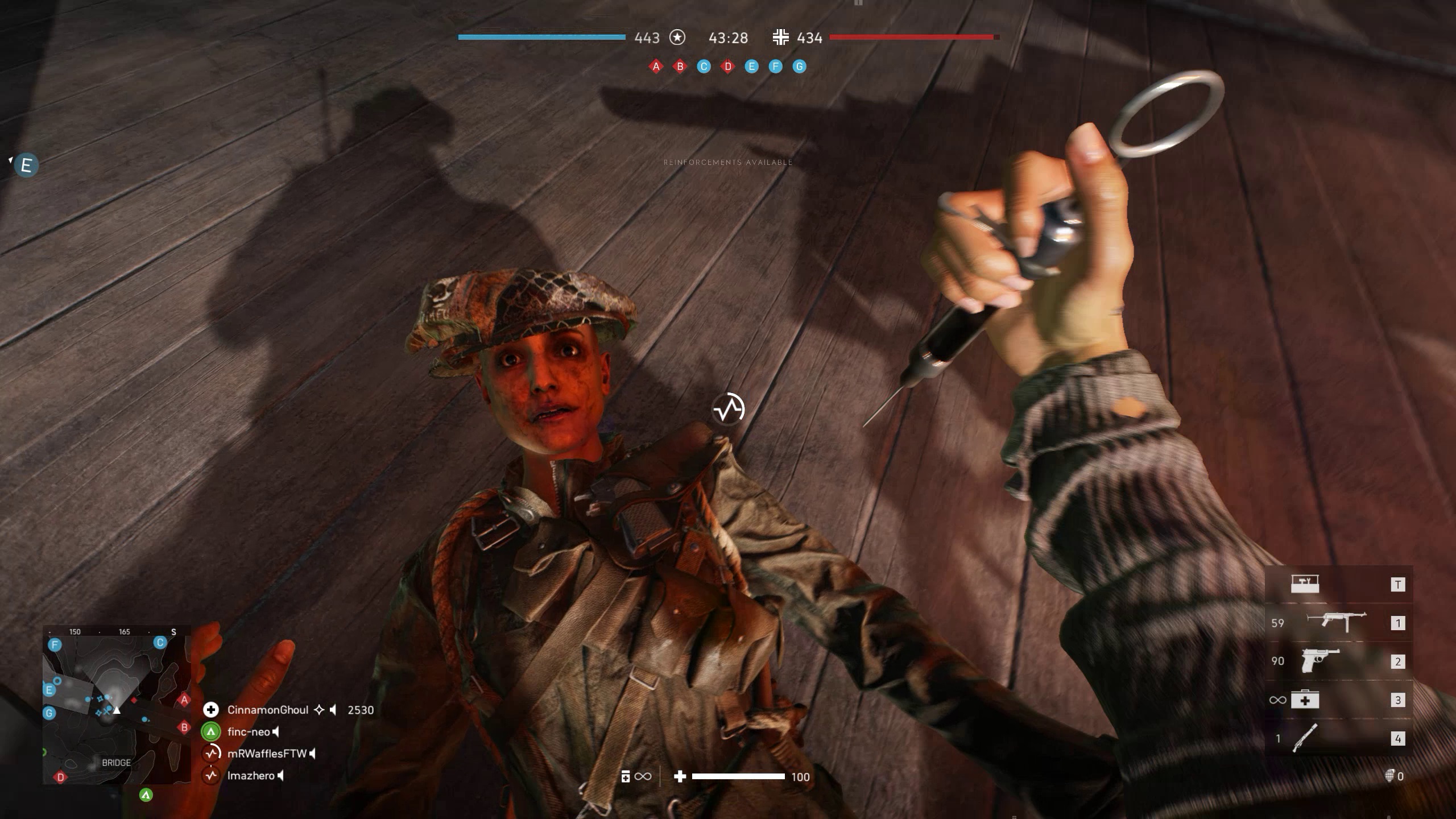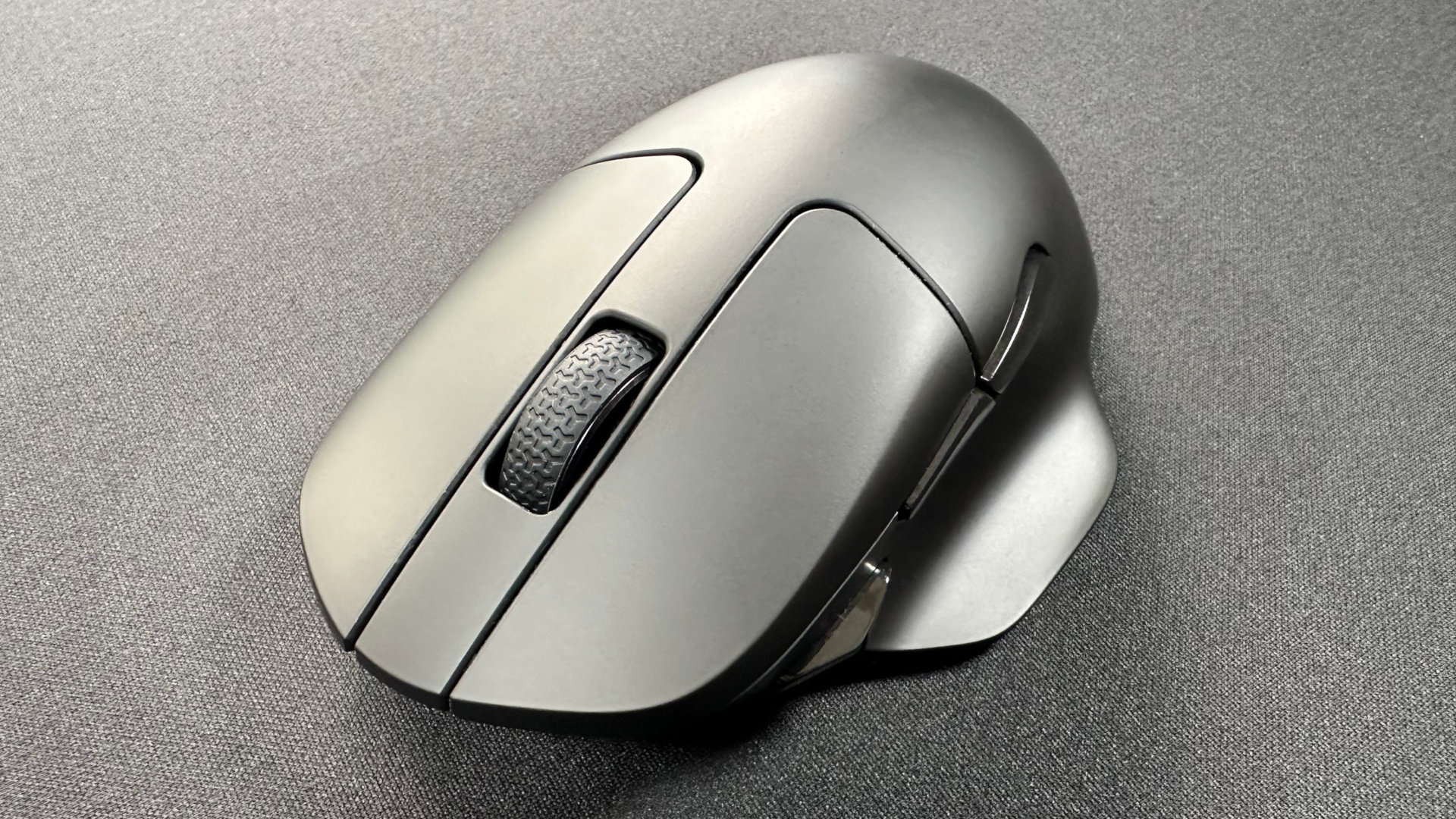Dying is a key skill in Battlefield 5, and I'm extremely good at it
Being a great Battlefield 5 player isn't just about how many enemies you bury, but how selfless you are.
VIDEO: A resurrection spree in Battlefield 5.
In Battlefield 5, hitting zero hitpoints is only the beginning of the end.
When you're sufficiently shot full of holes, you enter a down-but-not-out state. In this limbo of temporary invulnerability, Battlefield 5 makes you decide how would you like to die. There are three things you can do to influence your demise:
- Mouse 1: Die more slowly, giving a teammate a larger window of time to revive you
- Mouse 2: Die more quickly
- Do nothing, and die at normal speed
The whole system is an exercise in restraint, a welcome concept in the genre.
If you're fighting on the frontline, you're doing this maybe 20 or 30 times per match. Get knocked down; hope someone can save you; if not: give up and respawn. This sequence isn't new to competitive FPSes, but the nuances of how death works in Battlefield 5 absolutely are.
For the first time in the series, Medics aren't the only characters who can save lives. Any squadmate can revive another squadmate, a tweak that, for the better, encourages four-person teams to hang together. It's cool that lifelong Support or Assault players now share the burden of keeping the squad up and fighting, and likewise that it relieves Medics slightly of their specialization.

Alongside that new social pressure to help your buddies, the act of reviving someone has never been more dangerous. In Battlefield 1, a jab of the magic Medic serum instantaneously resurrected the dead. You could flip teammates back to life like lightswitches, saving a trenchful of dead pals in seconds flat. But in BF5, Medics and non-Medics have to commit to a seconds-long revive animation that they can't easily cancel out of. Saving someone locks your camera into a scripted movement toward the ground, making you a sitting duck.
Every revive is riskier, which means that dying players have an even bigger responsibility to avoid baiting their teammates into revives that are guaranteed to get them killed. How you die is now a skill—a test of your physical awareness, communication, and selflessness. The best die-ers in Battlefield 5 think about the sightlines on their body. The worst ones hit the brakes on their slide into the afterlife at every opportunity, clinging to Mouse 1, to trigger audible, pleading voice lines that instill guilt in all Medics in earshot.
Keep up to date with the most important stories and the best deals, as picked by the PC Gamer team.
The whole system is an exercise in restraint, a welcome concept in the genre. Like every FPS, there are deaths in Battlefield 5 that feel especially cheap or annoying. When you're downed like this, there's an immediate desire to wipe your impending death off the scoreboard, to Ctrl + Z some undeserved doom away with a revive. But as I continue to put time into BF5, I've had to learn how to die gracefully in moments like these, to swallow a negative stat so my death doesn't produce a bigger pile of bodies, eating away at my team's tickets.
As Battlefield 5 gets patched, I'd love to see DICE take the system a step further to protect healers, similarly to the way that you can't choose to spawn on teammates who are in a firefight. If hitting Mouse 2 to die faster dimmed or even hid players' DBNO indicators, it could empower those players to be more active participants in their own death.
For now, the way you die in Battlefield represents one a subtle but meaningful change to a 16-year-old series, joining games like Rainbow Six Siege that give players more to do in death than waiting to live.

Evan's a hardcore FPS enthusiast who joined PC Gamer in 2008. After an era spent publishing reviews, news, and cover features, he now oversees editorial operations for PC Gamer worldwide, including setting policy, training, and editing stories written by the wider team. His most-played FPSes are CS:GO, Team Fortress 2, Team Fortress Classic, Rainbow Six Siege, and Arma 2. His first multiplayer FPS was Quake 2, played on serial LAN in his uncle's basement, the ideal conditions for instilling a lifelong fondness for fragging. Evan also leads production of the PC Gaming Show, the annual E3 showcase event dedicated to PC gaming.

